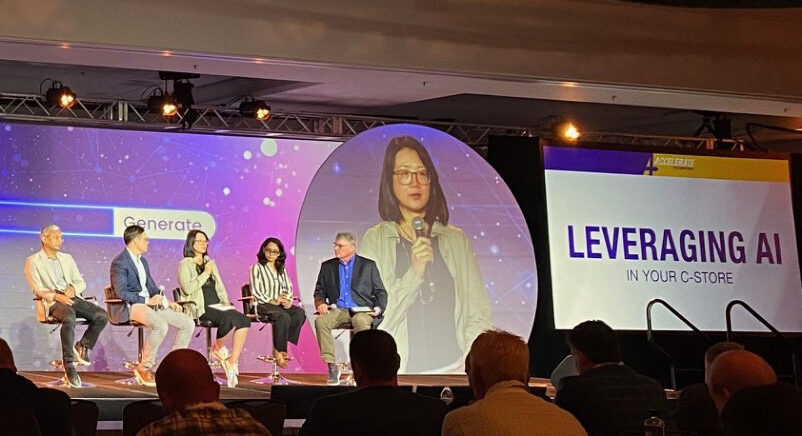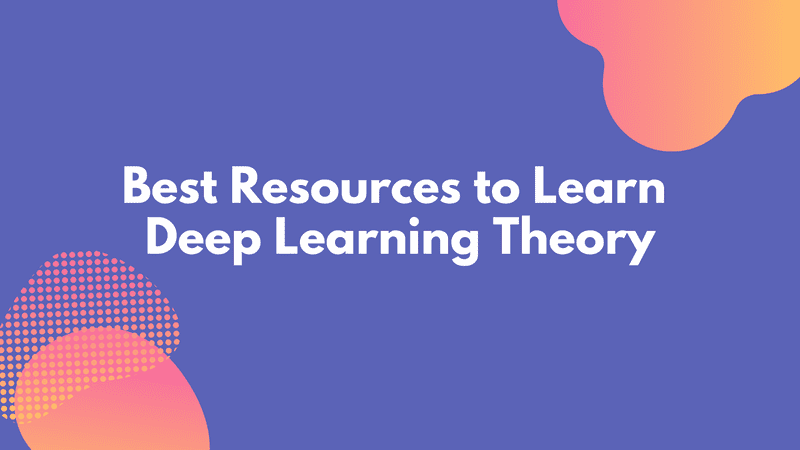

CSP Staff
Artificial intelligence (AI) is a step above other technologies because it not only collects data, but it also analyzes data. It’s a valuable tool to make use of, convenience-store retailers, technology suppliers and industry experts said during a panel at the Dover Fueling Solutions Accelerate Ahead conference in Austin this week.
And it doesn’t need to be a big monetary investment.
“This ability to use AI within the existing set of tools and technologies that they’re used to without them having to spend money as business owners becomes really powerful in adopting and adapting AI,” said Sridhar Sudarsan (left), chief technology officer at SparkCognition, based in Austin.
Other panelists included Nate Wootten (second from left), partner and vice president of commercial strategy at WillowTree, Charlottesville, Virginia; Juichia Che (third from left), principal cloud solution architect at Microsoft, Redmond, Washington; and Poornima Bethmangalkar (fourth from left), industry group head of industrial and manufacturing at Happiest Minds Technologies, Bangalore, India. The session was moderated by Gray Taylor (right), executive director at Conexxus, Alexandria, Virginia.
Here are four AI use cases for inside convenience stores discussed at the session:
1. AI Cameras
It’s not about getting more data. It’s about driving actions efficiently based on that data, said Sudarsan.
Retailers can leverage the cameras they already have.
“If you think about cameras, they’re basically eyes. You have eyes everywhere, but likely no brains,” he said
AI cameras have a brain and can generate actions based on what it tracks customers doing or what’s happening in a store, such as a slip, theft, a product that’s missing on the shelf or noticing a long line and telling employees when a new register should be opened.
Another use case for AI cameras is maintaining a more seamless way to manage stock.
AI cameras can be pointed at shelves to provide intelligent insights about what needs restocking. It’s not only able to tell retailers when product is running low, but it’s smart about the best time to restock the product.
“For example, if you’re stocking breakfast tacos, you don’t want to have it fully stocked around 11 a.m. when you’re shifting over to lunch time, because then, you’re going to deal with wastage,” Sudarsan said.
There’s value in being able to apply that intelligence and then generate alerts so that the employee can take action, he said.
2. Order Ahead
Consumers will spend about 12% more when they order ahead instead of organically browsing the store, said Sudarsan.
Make the discovery flow faster, especially when a potential customer is driving.
“It’s really dangerous to start thinking about ordering ahead … bringing AI into a conversational experience that knows me, knows my preferences and can help accelerate the discovery flow for consumers is where we’re focusing,” Sudarsan said.
This makes the driving experience safer while providing a way for consumers to find out what’s around them.
3. Limit Food Waste
When an expiry (expiration) date is coming up, a retailer can use AI, which has already collected expiry-date data, to discount that item so it moves off the shelf faster, said Bethmangalkar of Happiest Minds Technologies.
4. Voice Alerts
When store employees wear headsets, instead of managing communications with each other, voice AI can step in and notify employees when, for example, an aisle needs to be cleaned, Sudarsan said.
This redistributes employees’ time to other tasks.
Members help make our journalism possible. Become a CSP member today and unlock exclusive benefits, including unlimited access to all of our content. Sign up here.




